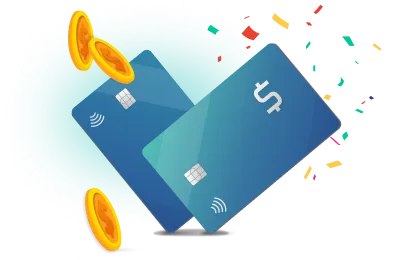Best credit cards for building credit of 2026
Build your credit with a credit card. Get matched to credit cards from our partners based on your unique credit profile.⍉

Get higher approval odds
Great option if you’re having trouble getting approved for a credit card.
Protect yourself from fraud
Get fraud protection benefits, like limited or $0 liability for unauthorized purchases.
Earn rewards for your spending
Pick a card that offers cash back rewards to get more for your money.
Browse categories
All credit cards for building credit
16 partner offers
Avant® Mastercard®
Ongoing APR: | 35.99%* |
|---|---|
Rewards: | N/A* |
Annual Fee: | $0* |
Capital One Platinum Secured Credit Card
Ongoing APR: | 28.99% (Variable) |
|---|---|
Rewards: | N/A* |
Annual Fee: | $0 |
Capital One Quicksilver Secured Cash Rewards Credit Card
Ongoing APR: | 28.99% (Variable) |
|---|---|
Rewards: | 1.5% - 5% (cash back) |
Annual Fee: | $0 |
FIT™ Platinum Mastercard® - $400 Credit Limit
Ongoing APR: | 35.90% Fixed |
|---|---|
Rewards: | N/A* |
Annual Fee: | $99 first year; $125 thereafter |
Avant® Cashback Rewards Mastercard®
Ongoing APR: | 35.99%* |
|---|---|
Rewards: | 1% (cash back) |
Annual Fee: | $39* |
Avant® Cashback Rewards Mastercard®
Ongoing APR: | 35.99%* |
|---|---|
Rewards: | 1% (cash back) |
Annual Fee: | $75* |
Credit One Bank American Express® Card for Rebuilding Credit
Ongoing APR: | 29.74% Variable |
|---|---|
Rewards: | 1% (cash back) |
Annual Fee: | $75 First year. $99 thereafter, billed monthly at $8.25 |
Terms Apply
Rates and feesThe opensky® Secured Visa® Credit Card
Ongoing APR: | 23.89% Variable |
|---|---|
Rewards: | 10% (cash back) |
Annual Fee: | $35 |
Revel® Platinum Mastercard®
Ongoing APR: | 35.90% Fixed |
|---|---|
Rewards: | N/A* |
Annual Fee: | $75 - $125 |
Avant® Cashback Rewards Mastercard®
Ongoing APR: | 35.99%* |
|---|---|
Rewards: | 1% (cash back) |
Annual Fee: | $0* |
First Latitude Secured Mastercard® Cash Back Rewards
Ongoing APR: | 27.49% Variable |
|---|---|
Rewards: | 1% - 10% (cash back) |
Annual Fee: | $0 |
First Progress Select Secured Mastercard® Cash Back Rewards
Ongoing APR: | 17.49% Variable |
|---|---|
Rewards: | 1% - 10% (cash back) |
Annual Fee: | $39 |
First Progress Prestige Secured Mastercard® Cash Back Rewards
Ongoing APR: | 13.49% Variable |
|---|---|
Rewards: | 1% - 10% (cash back) |
Annual Fee: | $49 |
Avant® Cashback Rewards Mastercard®
Ongoing APR: | 29.99%* |
|---|---|
Rewards: | 2% (cash back) |
Annual Fee: | $0* |
Avant® Cashback Rewards Mastercard®
Ongoing APR: | 35.99%* |
|---|---|
Rewards: | 1% (cash back) |
Annual Fee: | Introductory fee of $75 for the first year. After that, $99 annually.* |
What you should look for in a credit card for building credit
Look for 3-bureau reporting
Build your credit with a card that reports to all 3 credit bureaus.
Start with a secured card
Add a deposit to your card to set your credit limit.
Consider upgrade potential
Switch to an unsecured card once you build your credit.
Pick a pre-qualified card
Avoid extra inquiries by picking a card that you pre-qualify for.
Start with your FICO® ScoreΘ and see card offers matched to your credit profile.
Get started for free




















